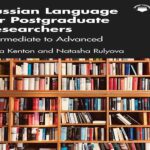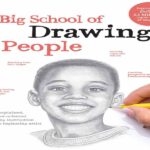- عنوان کتاب: The Certainty Illusion – What You Dont Know and Why It Matters
- نویسنده: Patrick Parra Pennefather
- حوزه: نظریه روانشناسی
- سال انتشار: 2025
- تعداد صفحه: 350
- زبان اصلی: انگلیسی
- نوع فایل: pdf
- حجم فایل: 3.07 مگابایت
از بسیاری جهات، این زمان باشکوهی برای دانش است. بهترین. زمان. همیشه زمانی که بسیاری از جهان به اطلاعات دقیق تولید شده، مستقل و با دقت در مورد همه چیز از سلامت ما گرفته تا جزئیات مربوط به سیاهچاله در مرکز کهکشان ما دسترسی دارند. تعداد محققان بسیار آموزش دیده بیش از هر زمان دیگری در تاریخ بشر است. صداها و دیدگاه های متنوع تری در آمیخته ایجاد دانش وجود دارد. تحقیقات بیشتری در مورد چیزهای بیشتری در حال انجام است. و راه های بیشتری برای دسترسی و به اشتراک گذاری دانش تولید شده توسط آن تحقیق و تجزیه و تحلیل وجود دارد. این همه خوب است. و باید همچنان ما را هیجان زده و شگفت زده کند. این باید به ما امیدوار باشد که بتوانیم برای مشکلات خود، چه بزرگ و چه کوچک، پاسخ های منطقی و مبتنی بر شواهد پیدا کنیم. هم شخصی و هم اجتماعی. این امید را نگه دارید آن را طوری نگه دارید که انگار یک نجات دهنده است و شما را در دریای سرد و خروشان پرتاب کرده اید. و بدانید که یک راه نجات آگاهانه وجود دارد. زیرا، گاو مقدس، درک آن طناب زندگی سختتر و سختتر میشود (اگرچه امیدوارم این کتاب کمک کند!). واقعیت کنونی: محیط اطلاعاتی ما – فضایی که در آن به دنبال دانش جهان هستیم، در آن مشارکت می کنیم و با آن در تعامل هستیم – کاملاً و واقعاً درهم شکسته است. این مجموعه ای از دروغ، تحریف، و ناسزاهای پر از خشم است. این یک تناقض بزرگ ایجاد کرده است: ما بیش از هر زمان دیگری به دانش بیشتری دسترسی داریم و در عین حال، اطمینان کمتر و کمتری در مورد موضوعاتی که برایمان مهم هستند، داریم. این را همه می دانند. این یک حقیقت واقعی در زمان ماست. اما بدتر می شود. ابزارهایی که ما برای پیمایش در میان سر و صدا و یافتن ظاهری از قطعیت استفاده می کنیم – تجزیه و تحلیل علمی و دانشگاهی، نظرات کارشناسان، بازنمایی اجماع، و توصیه های مبتنی بر شواهد – نیز در حال خراب شدن و پیچ خوردگی هستند و اغلب آنها را تقریباً بی فایده می کند. به عنوان مثال، اکتشافات علمی تحول آفرین کمتری نسبت به دهه های گذشته رخ می دهد، اما تحقیقات در حال حاضر بیش از هر زمان دیگری مطرح شده است. تعداد فزاینده ای از مجلات علمی جعلی و بی کیفیت وجود دارد که هم ادبیات دانشگاهی و هم گفتمان عمومی را آلوده می کند. استفاده از علم بد – و زبان علمی – برای فروش محصولات، رویهها و برنامههای سیاست جعلی به ما عادی شده است. بررسیها و رتبهبندیهای جعلی مصرفکننده از تمایل ما برای داشتن نظر معتبر سوء استفاده میکند. و حتی جستجوی ما برای وضوح توسط بازاریابان با استفاده از یک اطمینان ساختگی و واهی در مورد آنچه سالم، مورد نیاز و خوب است دستکاری می شود. ما در طوفانی از هرج و مرج اطلاعاتی غرق هستیم و فانوس های دریایی را خراب می کنیم. این یک بحران تولید و توزیع دانش است. اما اگر به شما بگویم مشکل این نیست که اکوسیستم اطلاعاتی ما اطلاعات قابل اعتمادی را در اختیار ما قرار نمی دهد، چه؟ اگر به شما بگویم که برای ترویج هرج و مرج اطلاعاتی تقلب شده است چه؟ اگر به شما بگویم انگیزه ای برای فریب دادن ما شده است؟ سوال این است: چگونه به اینجا رسیدیم؟ و خیلی فوری تر: چگونه از این آشفتگی خارج شویم؟
In so many ways, this is a glorious time for knowledge. Best. Time. Ever. A time when much of the world has access to rigorously produced, independent, and carefully curated information on everything from our health to details about the black hole at the centre of our galaxy. There are more highly trained researchers than at any time in human history. There are more diverse voices and perspectives in the knowledge- creation mix. There is more research happening on more things. And there are more ways to access and share the knowledge produced by that research and analysis. This is all good. And it should continue to excite and amaze us. It should give us hope that we can find rational and evidence- informed answers to our problems, both big and small. Both personal and societal. Hold onto that hope. Hold it like it is a life preserver and you’ve been thrown into a cold churning sea. And know that there is a knowledgeinformed lifeline out there. Because, holy cow, that lifeline is getting tougher and tougher to grasp (though I hope this book will help!). The present reality: our information environment—that space where we seek, contribute to, and interact with the world’s knowledge—is completely and truly f*cked. It is a tangle of lies, distortions, and rage- filled rants. This has created a massive paradox: we have more access to more knowledge than ever before and, at the same time, less and less certainty about the issues that matter to us. Everybody knows this. It is a truism of our time. But it gets worse. The tools we use to navigate through the noise and to find some semblance of certainty—science and academic analysis, expert opinions, representations of consensus, and evidence- informed recommendations—are also being corrupted and twisted, often rendering them near useless. There are, for example, fewer transformative scientific discoveries happening now than in past decades, but research is hyped now more than ever. There are an increasing number of fake and poor- quality scientific journals that pollute both the academic literature and public discourse. It has become the norm to use bad science—and science-y language—to sell us bogus products, procedures, and policy agendas. Fake consumer reviews and ratings exploit our desire for authentic opinion. And even our search for clarity is manipulated by marketers using a manufactured and illusory certainty about what is healthy, needed, and good. We are adrift in a storm of information chaos, and we are tearing down the lighthouses. This is a knowledge production and distribution crisis. But what if I told you the problem wasn’t simply that our information ecosystem isn’t providing us with reliable information? What if I told you it has become rigged to promote information chaos? What if I told you it has become incentivized to deceive us? The question is: how did we get here? And much more urgently: how do we get out of this mess?
این کتاب را میتوانید از لینک زیر بصورت رایگان دانلود کنید:
Download: The Certainty Illusion – What You Dont Know and Why It Matters



































نظرات کاربران